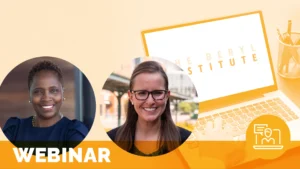Nine Spiritual Principles for Patient Experience

David Carl, Executive Director of Pastoral Care and Education, Carolinas HealthCare System
To meet and inspire others through Patient Experience we need to be engaged and inspired from within. Real-world applications of Nine Spiritual Principles will remind attendees of the call and passion for why they got into the healing field in the first place. This focus will in turn have a positive influence on being more fully present with those for whom we care. Through story telling, illustrations, and experiential engagement with the audience, those in attendance will remember how essential it is to view self and others as multi-sensory beings. All present will be asked to recall that they are composed of – Mind-Body-Spirit interfaces – and so are our patients, families, and colleagues we engage.
Related content
-
 Culture & Leadership | Innovation & Technology | Staff & Provider Engagement
Culture & Leadership | Innovation & Technology | Staff & Provider EngagementHuman-Centered Leader Rounding: Using Generational Insights and Personalization
Explore how healthcare leaders can design and adapt their rounding processes to cater to different patient and employee generations, combining generational data with a personalized approach that is specific to the individual. The discussion will focus on personalized care, communication preferences, and bridging generational gaps in expectations through a human-centric approach that prioritizes empathy and
Learn more -
 Staff & Provider Engagement
Staff & Provider EngagementCommunicating at an Elementary Level: Lessons from Young Learners
Join us as Katelyn Moser, Senior Director of Patient Experience at MedStar Washington Hospital Center, shares insights from Career and Communication Day—an innovative initiative that brings elementary school students to her campus. This program not only reinforces essential communication skills among staff but also introduces children to the diverse career opportunities within healthcare. Don’t miss
Learn more -
 Patient Family & Community Engagement | Staff & Provider Engagement
Patient Family & Community Engagement | Staff & Provider EngagementBuilding Cognitive-Based Compassion into Service Recovery Training
2pm ET / 1pm CT / 12pm MT / 11am PT – Traditional service recovery training often focuses on key principles and de-escalation techniques, leaving learners with theoretical knowledge but lacking practical implementation skills. In response to rising workplace violence and increasing complaints, we redesigned our service recovery training to incorporate cognitive-based compassion training. This
Learn more
